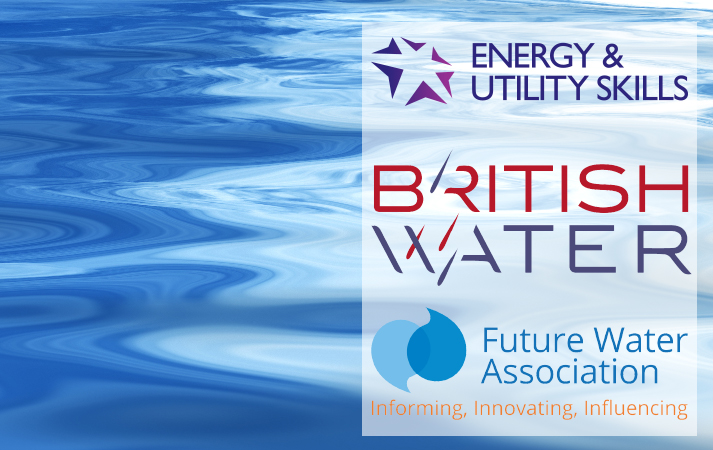Published on: May 4, 2020 at 11:48 AM
Throughout the COVID-19 incident the UK water industry has set out clearly that there can be no reduction in competence or compliance across the duration of the pandemic and hygiene practice will be a very high priority, to protect the health of individuals and the public.
Energy & Utility Skills and the water trade body Water UK have already been working in close partnership to help maintain and increase drinking water safety and compliance. Operating through the Water UK Strategic Drinking Water Quality Network, the collaboration has already seen the full enhancement and reissue of the major Competent Operator Scheme, and led to the creation of a National Water Hygiene Group (NWHG) that is focused on progressing strategic actions that will help enforce the National Water Hygiene Scheme that is mandated within the Water UK Standards and Technical Guidance and the Principles of Water Supply Hygiene.
One of the strategic actions of the NWHG is to ensure that all of the indirectly employed workforce fully understand their responsibilities when working on a water company site, and are in possession of all the information needed to ensure they have a valid and current registration card. Part of this is being enacted through their own internal management, but a wider communication and deployment effort was desired. This is where British Water and the Future Water Association have pro-actively stepped in, partnering with Energy & Utility Skills to reinforce the health messages and also directly help their extensive supply chain membership to be fully briefed on all the latest requirements, be suitably accredited, and have access to all the news on virtual training and assurance methods during the duration of the pandemic.
Discussing the new collaboration, Lila Thompson, Chief Executive of British Water advised
“The supply chain workforce is active on water company sites and assets across the UK, assisting the delivery of safe and high-quality tap water to millions of homes across our communities. Maintaining the highest levels of safety procedures and hygiene practice is vital, and British Water is working in partnership with Energy & Utility Skills to promote best practice and help ensure that every supply chain worker knows their responsibilities when working within restricted operations, and has a current and valid National Water Hygiene Scheme card. This is often known as the ‘Blue Card’. Our partnership will help ensure, throughout the lock down period, that access to the mandated Blue Card training is maintained, and that there is a heightened focus on everyone acting together to protect the quality of our vital public water supply.”
Paul Horton Chief Executive of the Future Water Association, was keen to see his organisation take a leading role, advising:
“Every day in the UK around 16 billion litres of high-quality tap water is delivered directly to our homes, hospitals, businesses and communities. The role of the supply chain workforce in helping water companies to deliver that essential service safely and to the highest of hygiene standards is often unseen but is pivotal. The Future Water Association has partnered with Energy & Utility Skills to help our members to be fully aware of their responsibilities to have a valid and current National Water Hygiene Scheme ‘Blue Card’ and how to access the required training, renewal information and advice it under the current pandemic restrictions. The Blue Card is a mandated requirement across all water company restricted operation sites and assets, and this partnership to ensure the highest standards of supply chain hygiene practice around the public water supply, could not be more important.”
Nick Ellins, Chief Executive of Energy & Utility Skills described the new partnership with British Water and the Future Water Association as a practical demonstration of the high value that exists, when the organisations that underpin the water companies daily operations combine their efforts. He pointed out that the National Water Hygiene Scheme registration, or ‘Blue Card’ as it is often known, is mandated by the UK water companies when working within their restricted operations and that responsibility extends from source to tap. The Blue Card was deliberately introduced to provide the necessary training and behaviours needed to work in close contact with the public water supply, and is actively supported by the UK’s drinking water quality regulators.
He advised:
“British Water and the Future Water Association are constantly scanning the UK water industry, looking to see where they can use their expertise and extensive membership reach to enhance the outcomes for the whole sector and society. This is another live demonstration of them adding tangible value to water companies and proactively driving higher levels of competence and compliance. We appreciate their support in promoting hygiene practices and praise the proactivity they always display”.
“The public reliance on safe and high-quality tap water has rarely ever been as great as we are seeing, as the UK stays at home to tackle this pandemic. The quality, inexpensive nature and ‘to the tap’ delivery is underpinning our public health and society. The water companies and regulators are crystal clear that efforts will only accelerate to protect the public trust in its tap water and to ensure that there are no incidents. Everyone involved in restricted operations, from catchment to tap, must take every step possible to play their part and deliver best hygiene practice. We and our partners are committed to that aim.”
